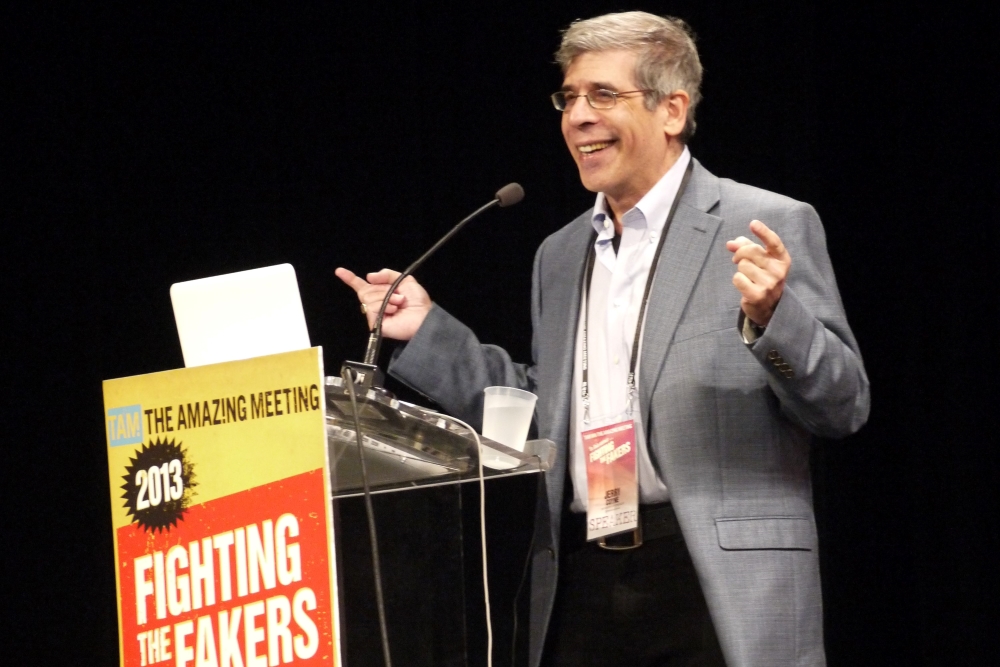Share This Article
Do scientists believe in God?
S.W. Welch, bookseller
Answer by Jerry A. Coyne:
My background is in evolutionary biology, but for years I’ve studied the relationship between science and religion, and even wrote a book about it: Faith Versus Fact: Why Science and Religion are Incompatible. But that title may not answer Welch’s question, which can be interpreted in two ways.
The first way is this: “Are there any scientists who believe in God?” And the answer to that is, “Yes, of course.” A Pew survey in 2009 showed that 33% of scientists attested to a belief in God, another 18% believed in a “universal spirit or higher power,” and 41% were atheists or agnostics. But that’s far less belief than held by the American public as a whole, where the figures are 83%, 12%, and 4% respectively.
What’s interesting is that more accomplished scientists show less belief in God: 93% of members of the elite National Academies of Sciences, for example, are atheists. This could mean either that the more accomplished scientists tended to be nonbelievers at the start of their careers, or that doing good science makes one less of a believer.
It’s likely that both factors work together, which brings us to the second way to construe the question: “Is it reasonable for scientists to believe in God?” And here, as I discuss in my book, the answer is “no.” This is based on the observation that both science and religion make empirical claims about the world—though of course religion does more than make such claims—but only science has a way to decide whether these claims are true. Science’s toolkit of experimentation, cross-checking, doubtfulness, and hypothesis-testing far outstrips religion’s “way of knowing”, which comprises only scripture, revelation, and authority.
The fact that science can find truth but religion can’t is shown by the remarkable progress made by science in 300 years, while no progress has been made in theology. If there is a God, we know no more about Him than did St. Augustine.

Furthermore, there are hundreds of different religions, all making claims about what’s true, and yet many of the claims are incompatible (e.g., “Was Jesus the son of God, or only a prophet?”). There’s no way to decide among these claims, since religion has no way to test them.
Science is an a-theistic enterprise in the sense that we don’t invoke gods or the supernatural to explain the world, nor do we need to. When a religious scientist goes into her lab, she leaves religious belief at the door, abandoning the very mindset she adopts when she walks into church. It is for this reason that while many scientists do believe in God, they are holding two different and incompatible ways of viewing truth.
Biography:
Jerry A. Coyne is Professor Emeritus in the Department of Ecology and Evolution at the University of Chicago. Coyne received a BS in Biology from the College of William and Mary and a Ph.D. in Evolutionary Biology at Harvard University. His scientific work is on the genetics of species formation, the problem raised (but not solved) by Darwin in On the Origin of Species.
Besides 125 scientific papers, Coyne has written a scholarly book about his research area (Speciation, 2004) and two popular books, Why Evolution is True (2009) and Faith Versus Fact: Why Science and Religion are Incompatible (2015). He has also written over 160 popular articles and book reviews in places like The New York Times, The Washington Post, The New Republic, The Times Literary Supplement, The Guardian, Slate, and The Nation.

He is an elected member of the American Academy of Arts and Sciences and a recipient of the 2011 Emperor Has No Clothes Award from the Freedom from Religion Foundation as well as the 2015 Richard Dawkins Award from the Atheist Alliance of America.
Coyne’s blog, Why Evolution is True, has 60,000 subscribers and discusses not only the latest research in evolutionary biology, but also a variety of unrelated issues, including philosophy, politics, food, and cats.
